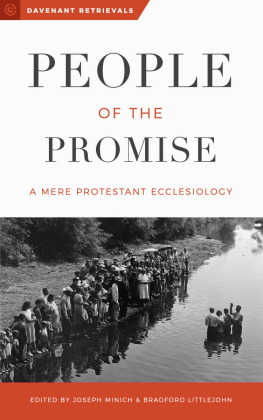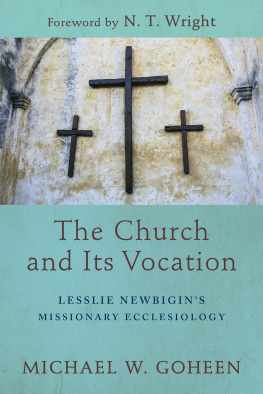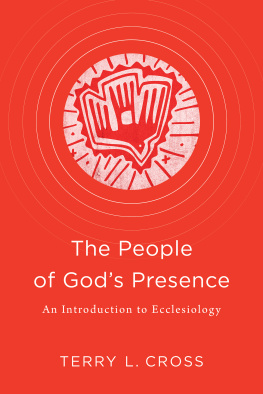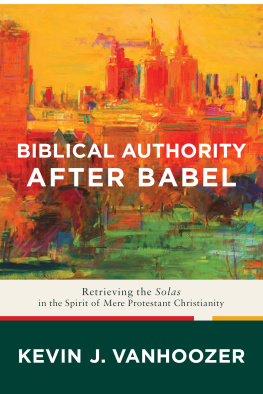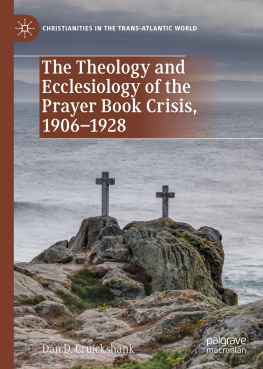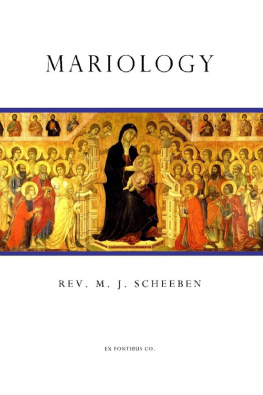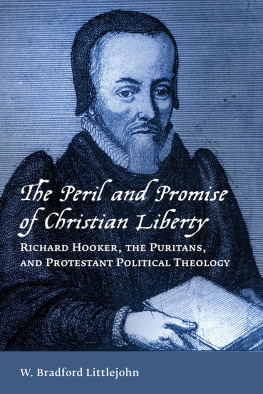Joseph Minich - People of the Promise: A Mere Protestant Ecclesiology
Here you can read online Joseph Minich - People of the Promise: A Mere Protestant Ecclesiology full text of the book (entire story) in english for free. Download pdf and epub, get meaning, cover and reviews about this ebook. year: 2017, publisher: Davenant Press, genre: Religion. Description of the work, (preface) as well as reviews are available. Best literature library LitArk.com created for fans of good reading and offers a wide selection of genres:
Romance novel
Science fiction
Adventure
Detective
Science
History
Home and family
Prose
Art
Politics
Computer
Non-fiction
Religion
Business
Children
Humor
Choose a favorite category and find really read worthwhile books. Enjoy immersion in the world of imagination, feel the emotions of the characters or learn something new for yourself, make an fascinating discovery.
- Book:People of the Promise: A Mere Protestant Ecclesiology
- Author:
- Publisher:Davenant Press
- Genre:
- Year:2017
- Rating:5 / 5
- Favourites:Add to favourites
- Your mark:
- 100
- 1
- 2
- 3
- 4
- 5
People of the Promise: A Mere Protestant Ecclesiology: summary, description and annotation
We offer to read an annotation, description, summary or preface (depends on what the author of the book "People of the Promise: A Mere Protestant Ecclesiology" wrote himself). If you haven't found the necessary information about the book — write in the comments, we will try to find it.
People of the Promise: A Mere Protestant Ecclesiology — read online for free the complete book (whole text) full work
Below is the text of the book, divided by pages. System saving the place of the last page read, allows you to conveniently read the book "People of the Promise: A Mere Protestant Ecclesiology" online for free, without having to search again every time where you left off. Put a bookmark, and you can go to the page where you finished reading at any time.
Font size:
Interval:
Bookmark:
DAVENANTRETRIEVALS seek to exemplify the Davenant Institutesmission of recovering the riches of the Reformation for the contemporarychurch, offering clear, concise, and collaborative expositions of a doctrinaltopic key to the Protestant heritage and defending its relevance today.
PEOPLE OFTHE PROMISE:
A MEREPROTESTANT ECCLESIOLOGY
Edited byJoseph Minich
andBradford Littlejohn
Copyright 2017 The DavenantTrust
All rights reserved.
ISBN: 0692942580
ISBN-13: 978-0692942580
Front cover image taken from MarionPost Wolcott, Baptism in Triplett Creek, KY (1940; G. Gibson Gallery,Seattle, WA)
Cover design by Rachel Rosales,Orange Peal Design
List ofcontributors
Joseph Minich is a graduateof Reformed Theological Seminary in Washington D.C. and is currently pursuing aPh.D in Humanities at The University of Texas at Dallas. Some of his writingcan be found at The Calvinist International and MereOrthodoxy.
BradleyBelschner is a systems analyst at EMSI, an economic modelingfirm, a determined generalist, and an enthusiast of Reformation theology. Hehas served as a co-editor of the Modernization of Richard Hookers Lawes project.
StevenWedgeworth (M.Div., Reformed TheologicalSeminary) is the pastor of Christ Church of Lakeland, Florida (CREC).Steven has published essays on politics, theology, and history, and is theco-founder and editor of The Calvinist International.
AlastairRoberts (Ph.D, University of Durham) is a leading evangelical blogger andauthor of several forthcoming books, including Heirs Together: A Theology ofthe Sexes and Echoes of Exodus: Tracing Themes of Redemptionthrough Scripture (both Crossway, forthcoming 2018). He blogs atwww.alastairadversaria.com and also serves as Editor of the Politics ofScripture section of Political Theology Today.
E.J. Hutchinson (Ph.D, Bryn MawrCollege) is Associate Professor of Classics at Hillsdale College (Hillsdale,Mich.), where he has taught since 2007. His research interests focus on theliterature of Late Antiquity and the Neo-Latin literature of the Renaissanceand Reformation, and he is translating Niels Hemmingsens De Lege Naturae forthe Sources in Early Modern Economics, Ethics, and Law series. He is a memberof the Orthodox Presbyterian Church.
Bradford Littlejohn (Ph.D,University of Edinburgh) is the President of the Davenant Institute andteaches philosophy at Moody Bible Institute (Spokane). He is the author of fourbooks, most recently The Peril and Promise of Christian Liberty: RichardHooker, the Puritans, and Protestant Political Theology (Eerdmans, 2017),and has published numerous articles and book chapters in historical theologyand Christian ethics. He also serves as an Associate Editor of PoliticalTheology.
Andre Gazal (Ph.D, Trinity International University) teaches at TrinityEvangelical Divinity School, the University of Northwestern Ohio, and NorthGreenville University. He is the author of Scripture and Royal Supremacy inTudor England: The Use of Old Testament Historical Narrative. He has alsocontributed to the Encyclopedia of Christianity in the United States (Rowmanand Littlefield, 2016) and the Encyclopedia of Martin Luther and Reformation(Rowman and Littlefield, forthcoming 2017).
Jordan Ballor (Dr. theol., University of Zurich; Ph.D, Calvin Theological Seminary)is a senior research fellow at the Acton Institute for the Study of Religion& Liberty in Grand Rapids, Mich. He is the author of Get Your HandsDirty (Wipf and Stock, 2013), Covenant, Causality, and Law (Vandenhoeckand Ruprecht, 2012, and editor of many other volumes).
Jake Meador is the VicePresident of the Davenant Institute and Editor-in-Chief of Mere Orthodoxy. Helives in Lincoln, NE with his wife and two children. He is the author of Searchingfor Shelter: The Quest for Community in a Fractured and Furious World (IVP,forthcoming 2018). His writing has appeared in First Things, Books& Culture, Front Porch Republic, Christianity Today, and FareForward.
AndrewFulford is a Ph.D candidate at McGill University, where he is researchingthe relationship of Richard Hookers thought to narratives of the emergence ofsecularity in the early modern period. He is the author of Jesus andPacifism: An Exegetical and Historical Investigation (Davenant, 2016), andessays on John Calvin and Richard Hooker.
For PeterEscalante
Mentor andFriend
CONTENTS
Part I: Introduction toProtestant Ecclesiology
Part II: ProtestantEcclesiology in Scripture
Part III: Protestant Ecclesiologyin History
Part IV: ProtestantEcclesiology Today
PREFACE
Bradford Littlejohn
THETASK of the present volume is, at first glance, a simple one: to present thebasic core of the Protestant doctrine of the church, shorn of the distractionsof the secondary disputes about polity, ministerial offices, sacramentalefficacy, liturgy and more that have so often preoccupied discussions of thechurch. Of course, precisely because such disputes have often elevated thesesecond-order issues to first importance, this task is not so simple. Certainly,it cannot claim to be a mere descriptive task, as if we were pretending tofunction merely as historians, investigating the history and founding documentsof the Protestant churches to find the shared kernel concealed in thevariegated husks of the Reformation traditions. No, our endeavor here is inlarge part a normative one, and unabashedly so. We aim to present in clearoutline form what the basic principles of Protestant ecclesiology shouldlook like, as an offering to a church today bewildered by the myriad offashionable models on offer.
Of course, ours is not, we hope, an arbitraryecclesiological wish list vying for attention amidst these fashionable models.In other words, although it is not merely descriptive, neither is it merelynormative. On the contrary, it is built on the fruits of three descriptivetasks (as all good Protestant theology should be): an exegetical description ofthe revealed content of the Scriptures, an historical description of thecentral claims of the Reformation and post-Reformation dogmatics, and adogmatic description of what, according to the internal logic ofProtestantisms claims, must be its true doctrine of the church. These threetasks correspond loosely to the Parts II through IV of the book, respectively,though to some extent, each is operative in greater and lesser degree at everypoint.
The kind of exegetically and dogmatically guidedhistorical retrieval, in service of an urgent contemporary need, and thuspresented in accessible prose without needless footnoting frills, is what weseek to model in the new series of which this book is the first offering,Davenant Retrievals. Readers familiar with our recent publication efforts mayrecognize some similarity to the objective of our Davenant Guides, which seekto offer short and accessible introductions to key issues of current debate intheology and ethics, drawing on a magisterial Protestant perspective anddefending its contemporary relevance today. The difference is our DavenantGuides are intended to be very short, introducing a single neglected keyconcept or commitment within magisterial Protestantism (though one that may bevery broad in its implications), whereas Davenant Retrievals aim to present amulti-faceted view of an entire dogmatic locus, drawing on the expertise of arange of contributors. Each volume in this series, we envision, will be theresult of a series of essays appearing in the themed quarterly issues of ourjournal, Ad Fontes
Font size:
Interval:
Bookmark:
Similar books «People of the Promise: A Mere Protestant Ecclesiology»
Look at similar books to People of the Promise: A Mere Protestant Ecclesiology. We have selected literature similar in name and meaning in the hope of providing readers with more options to find new, interesting, not yet read works.
Discussion, reviews of the book People of the Promise: A Mere Protestant Ecclesiology and just readers' own opinions. Leave your comments, write what you think about the work, its meaning or the main characters. Specify what exactly you liked and what you didn't like, and why you think so.

